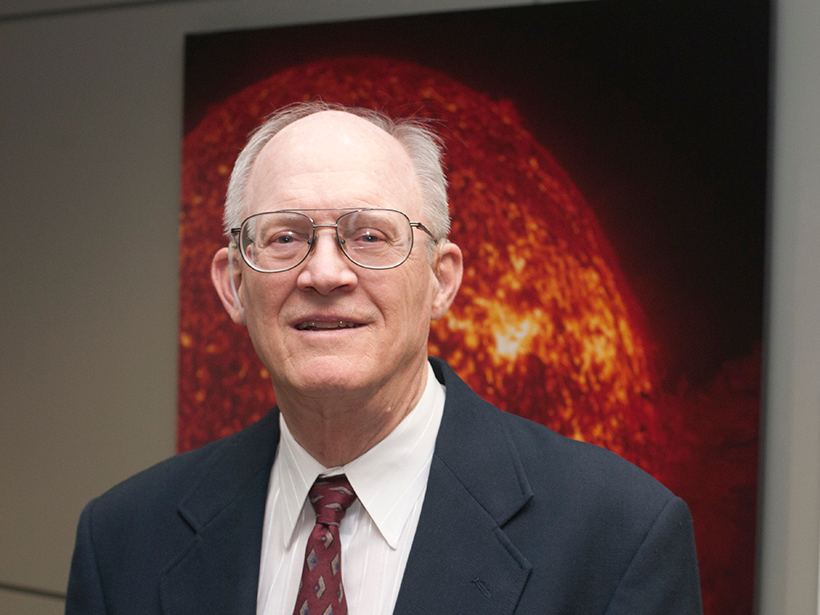This Neptune-sized object would be the first moon discovered to orbit a planet outside the solar system, provided that additional observations continue to support the claim.
News
Christopher N. K. Mooers (1935–2018)
This passionate physical oceanographer, a leader and catalyst in coastal studies, explored many facets of nearshore circulation and advanced the modeling and forecasting of coastal dynamics.
UCAR to Keep Managing National Center for Atmospheric Research
The head of the University Corporation for Atmospheric Research says he is excited about “taking our science to the next level.”
Lidar Uncovers Thousands of New Maya Structures
Jungle-piercing lidar surveys over ancient Maya sites give scientists the most extensive maps of lowland Maya civilization to date.
Congressional Hearing Tackles Illegal Fishing
Illegal, unregulated, and underreported fishing worldwide could account for more than $36.4 billion annually. Where do efforts to curb it stand?
John T. “Jack” Gosling (1938–2018)
This prolific researcher helped us understand the interactions of the solar wind and coronal mass ejections with Earth’s magnetic field.
New Exoplanet Telescope Detects Its First Two Planets
The two possible planets, each larger than Earth and too hot to be habitable, are the first of hundreds of Earth-sized exoplanets expected to be discovered by a recently launched telescope.
How Well Can the Webb Telescope Detect Signs of Exoplanet Life?
Recent research suggests that NASA’s next-generation space telescope will be good—but not the best—at finding life-sustaining levels of oxygen in an exoplanet’s atmosphere.
New Initiative Aims to Help Displaced Scientists
The accord, initiated by 10 Italian science institutions, hopes to provide temporary opportunities for some refugees until they can safely return to their home countries.
Congress Spars over Environmental Permitting
Democrats say that there is bipartisan support to reduce red tape but that environmental regulations shouldn’t be weakened to speed up the permitting process.









